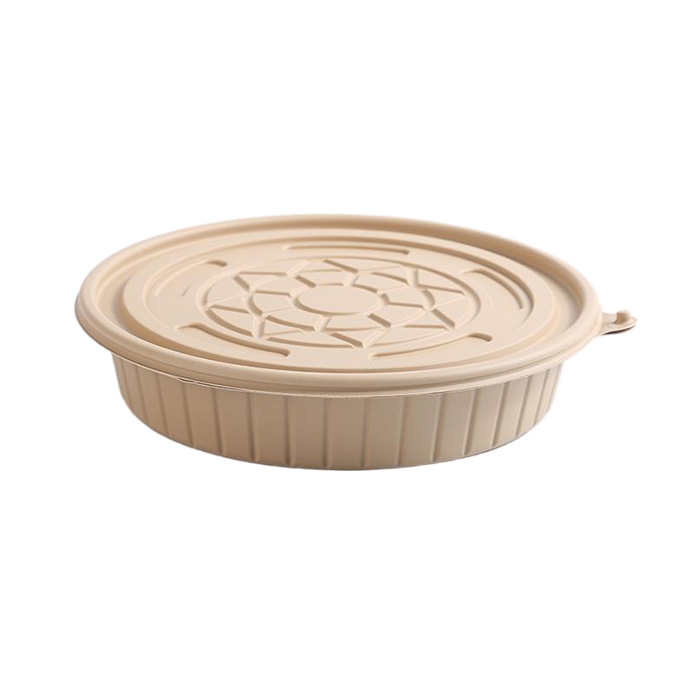Stainless Steel Woven Fabric: Key Properties & Applications
Looking to enhance durability while maintaining a touch of elegance in your projects? Stainless steel woven fabric offers the perfect blend of strength and sophistication. Whether for architectural designs or industrial applications, this material provides unmatched resilience and a sleek aesthetic. Say goodbye to compromising style for durability - with stainless steel woven fabric, you can have both. Elevate your creations with a material that stands the test of time without sacrificing visual appeal.
Key Takeaways
-
Choose the Right Type: Select the appropriate type of stainless steel wire mesh based on your specific application needs to ensure optimal performance.
-
Prioritize Durability: Consider the durability and tensile strength of stainless steel mesh for long-lasting and reliable use in various environments.
-
Emphasize Corrosion Resistance: Stainless steel woven fabric's corrosion-resistant features make it ideal for applications where exposure to harsh elements is a concern.
-
Follow Safety Guidelines: Adhere to safety measures when handling stainless steel mesh to prevent injuries and ensure safe usage.
-
Explore Diverse Applications: Explore the wide range of applications for stainless steel mesh, from filtration to security, to leverage its versatility.
-
Refer to Guidelines: Consult documentation and working guidelines to maximize the effectiveness and lifespan of stainless steel woven fabric.
Overview of Stainless Steel Wire Mesh
Basic Concept
Stainless steel woven fabric, also known as wire mesh, is a versatile material made by weaving stainless steel wires together. It creates a grid pattern that offers strength, durability, and corrosion resistance.
Stainless steel wire mesh is available in various weave patterns such as plain weave, twill weave, and Dutch weave. These different weaves affect the mesh's strength, filtration capabilities, and appearance. The selection of weave pattern depends on the specific application requirements.
Manufacturing Process
The manufacturing process of stainless steel wire mesh involves several steps. It starts with selecting high-quality stainless steel wires with precise diameters. These wires are then woven together using specialized machines to create the desired mesh pattern.
After weaving, the wire mesh undergoes processes like heat treatment to enhance its mechanical properties and resistance to corrosion. Quality control measures are implemented throughout the manufacturing process to ensure that the final product meets industry standards.
Benefits in Various Industries
Versatility: Stainless steel wire mesh finds applications across various industries such as aerospace, automotive, architecture, and food processing due to its versatility and adaptability. Durability: Its robust nature makes it ideal for demanding environments where strength and longevity are crucial. Corrosion Resistance: Stainless steel wire mesh is highly resistant to corrosion, making it suitable for outdoor use or in corrosive environments such as marine settings. Easy Maintenance: It requires minimal maintenance and can withstand harsh cleaning agents without deteriorating. High Temperature Resistance: Stainless steel wire mesh can withstand high temperatures, making it suitable for applications involving heat exposure. Hygienic Properties: In industries like pharmaceuticals and food processing, stainless steel wire mesh's smooth surface prevents bacterial growth and contamination.
Types of Woven Wire Cloth
Market Grade
Market grade square weave woven wire cloth is commonly used for general industrial applications. It features a standard mesh count with moderate wire diameter. This type offers good strength and durability, suitable for filtering and sieving operations in various industries.
Market Grade:
-
Standard mesh count
-
Moderate wire diameter
-
Good strength and durability
Mill Grade
Mill grade square weave woven wire cloth is characterized by a higher mesh count and finer wire diameter compared to market grade. It provides excellent filtration capabilities, making it ideal for precision filtering processes in the food and pharmaceutical industries.
Mill Grade:
-
Higher mesh count
-
Finer wire diameter
-
Excellent filtration capabilities
Bolting Grade
Bolting grade square weave woven wire cloth is designed with an even higher mesh count and ultra-fine wire diameter. This type excels in precision sifting applications, such as flour milling and particle size analysis. Its tight weave ensures accurate separation of materials.
Bolting Grade:
-
Higher mesh count
-
Ultra-fine wire diameter
-
Ideal for precision sifting
Key Properties of Stainless Steel Mesh
Corrosion Resistance
Stainless steel mesh is renowned for its exceptional corrosion resistance, making it ideal for harsh environments and outdoor applications. This property ensures longevity and minimal maintenance requirements.
Durability
The durability of stainless steel wire mesh is unmatched, providing a long-lasting solution for various industrial and commercial settings. Its robust nature withstands wear and tear, ensuring a reliable performance over time.
Comparison of Different Grades
-
304 Stainless Steel Mesh: Known for its versatility and excellent corrosion resistance, 304 stainless steel mesh is commonly used in food processing, architectural, and marine applications.
-
316 Stainless Steel Mesh: With added molybdenum content, 316 stainless steel mesh offers superior corrosion resistance, especially in acidic or chloride-rich environments. It is suitable for pharmaceutical, chemical, and coastal applications.
-
430 Stainless Steel Mesh: While less corrosion-resistant than 304 and 316 grades, 430 stainless steel mesh excels in high-temperature environments. It finds applications in automotive exhaust systems and industrial ovens.
Material Options for Specific Applications
When selecting the right stainless steel wire mesh for specific applications, considering the material options is crucial. For example, if you require enhanced corrosion resistance, opting for 316 stainless steel mesh would be beneficial. On the other hand, if high temperatures are a concern, 430 stainless steel mesh might be more suitable.
Durability and Tensile Strength
Stainless Steel Mesh in Harsh Environments
Stainless steel woven fabric is renowned for its durability in harsh environments due to its resistance to corrosion and rust. This makes it ideal for outdoor applications where exposure to moisture, chemicals, or extreme temperatures is common.
Industries such as aerospace and marine rely on stainless steel wire mesh for its ability to withstand challenging conditions without compromising performance. Its durability ensures longevity and minimal maintenance, reducing overall operational costs.
Impact of Tensile Strength
The tensile strength of stainless steel wire mesh plays a crucial role in its performance across various applications. This strength refers to the maximum stress a material can endure before breaking under tension, making it vital for withstanding heavy loads or high pressures.
In sectors like construction and automotive, where structural integrity is paramount, stainless steel mesh with high tensile strength is preferred. It provides stability and support, ensuring safety and reliability in demanding environments.
Industries Requiring Durability and Tensile Strength
-
Construction: Stainless steel woven fabric is used in construction for reinforcing concrete structures, offering durability against environmental factors and enhancing structural integrity.
-
Oil & Gas: In the oil and gas industry, stainless steel wire mesh is utilized for filtration systems due to its resistance to corrosion and high tensile strength.
-
Medical: Medical devices often incorporate stainless steel mesh for its biocompatibility, durability, and ability to maintain shape under tension.
Corrosion Resistance Features
Stainless Steel Grades
Stainless steel woven fabric stands out for its exceptional corrosion resistance. This unique property is attributed to the presence of chromium in the alloy, forming a protective oxide layer that prevents rusting. Different stainless steel grades like 304, 316, and 430 offer varying levels of corrosion resistance.
Varied Applications
The corrosion resistance of stainless steel wire mesh makes it ideal for a wide range of applications. In marine environments where exposure to saltwater is constant, using stainless steel mesh ensures long-term durability without succumbing to rust. Similarly, in industrial settings where chemicals are prevalent, the corrosion-resistant nature of stainless steel fabric protects against degradation over time.
Real-World Examples
In coastal regions where high humidity and salt content in the air accelerate metal corrosion, utilizing stainless steel wire mesh becomes crucial. For instance, in constructing outdoor structures like fences or architectural elements near the sea, choosing stainless steel mesh guarantees longevity and minimal maintenance requirements due to its superior corrosion resistance properties.
Applications of Stainless Steel Mesh
Industrial Usage
Stainless steel woven fabric finds extensive applications across various industries due to its durability and strength. In the industrial sector, it is commonly utilized for filtering, sieving, and separating materials.
The food processing industry heavily relies on stainless steel wire mesh for its hygienic properties and resistance to corrosion. It is used in food strainers, sieves, and screens to ensure product quality and safety.
Architectural Applications
In architecture and construction, stainless steel mesh is favored for its modern aesthetic appeal and structural integrity. It is employed in balustrades, facades, and interior design elements for both residential and commercial buildings.
For security purposes, stainless steel wire mesh is utilized in fences, gates, and window screens due to its robust nature that provides protection against intrusion while maintaining visibility.
Advantages Over Other Materials
Compared to traditional materials like plastic or aluminum, stainless steel wire mesh offers superior strength and longevity. Its high tensile strength makes it ideal for applications requiring durability and reliability.
One significant advantage of stainless steel mesh is its resistance to corrosion, making it suitable for outdoor use or in environments with high humidity levels. This feature ensures a longer lifespan compared to other materials that may degrade over time.
Key Industries
-
Food Processing: Ensures hygiene and product safety.
-
Construction: Provides modern aesthetic appeal and structural integrity.
-
Security: Offers robust protection against intrusion while maintaining visibility.
Mr. Xu
sales-xu@zm-fibre.com




